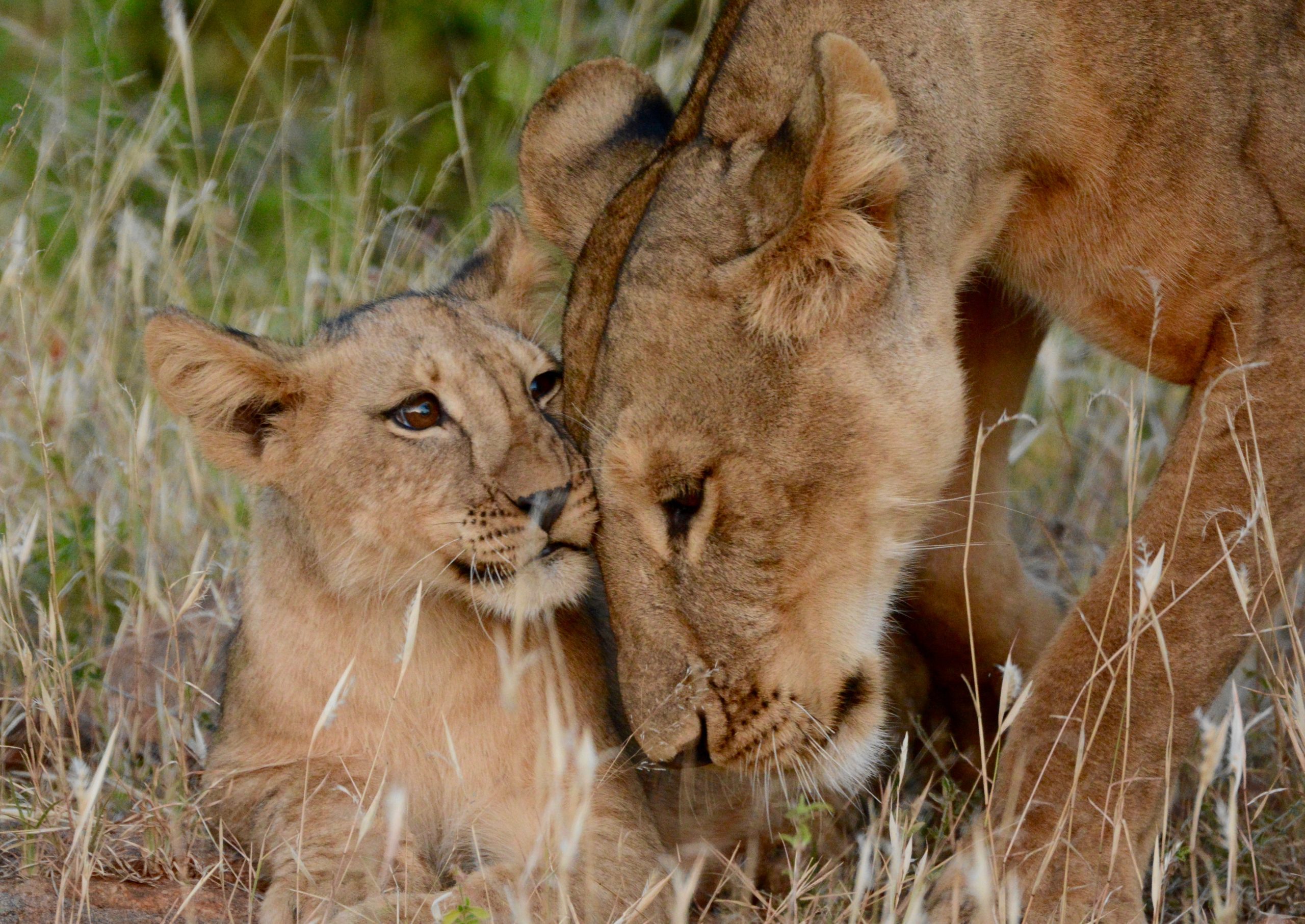
Habitat Recovery for Lion Conservation
Northern Kenya (Africa)
Lion population in Kenya has decreased dramatically, due to habitat loss, conflict with humans, large-scale infrastructure projects, and climate change. Designated protect areas are often not large enough for lions’ wide-ranging needs. Therefore the conservation efforts from surrounding local communities are key. Furthermore community-led conservation is key to reinforce a harmonious coexistence of humans and wildlife, while respecting and strengthening cultural traditions. We have partnered with the local NGO Ewaso Lions to support an organized group of local Samburu women called Mama Simba (Mothers of Lions). All year round Mama Simba perform habitat recovery tasks that are beneficial for the lions, the whole ecosystem, and the community.
United for Biodiversity, Ancestral Wisdom, and Women

Context
The Samburu is a pastoralist, semi-nomadic tribe, only found in the semi-arid desert of Northern Kenya. For centuries they have lived in harmony with wildlife. People, livestock and wildlife live together and move freely on the same land. The Samburu’s strong connection to their land and to wildlife, is reflected in their stories, ceremonies, and cultural life. In particular, lions are highly respected, they are considered a good omen, and are central to major ceremonies. The livelihoods of the Samburu depend on livestock, such us goats, sheep, cattle and camels. It is culturally acceptable to let some of their livestock be prey of lions, as they understand this is within a natural order. However, habitat loss, droughts, and lack of enough wildlife prey, has led lions to hunt a disproportionated amount of livestock. As a result, the Samburu are becoming less tolerant to lions, which has lead to conflict and retaliatory killing of lions. The Samburu live communally in villages called manyattas, where several families live together in huts. Men are responsible for herding and are the decision makers for every aspect concerning the community life. Women take care of all domestic activities, including setting up the manyattas and building the huts, taking care of the animals, fetching water and firewood, doing beadwork, and taking care of the children and family. In Samburu culture women are consider the owners of wildlife. Which means women are the ultimate responsible for their care. However, they were typically excluded from conservation efforts.

Impact
The Mama Simba (mothers of lions) is a self-organized group of Samburu women, created out of their own vision, leadership, and willingness to exert their birth right to care for wildlife. Currently the group is formed by 21 women coming from eight different neighbouring villages. All year round they perform specific habitat recovery activities which support the biodiversity of the whole ecosystem, decrease human-lions conflict, empower women, and improve their families living conditions. The Mama Simba protect and reforest native trees that provide shelter for lions, and other carnivores such us leopards and hyenas to hide and raise their cubs. These native trees are also an important source of natural medicine for the community. Reforestation is complemented with the removal of invasive species that displace native trees, degrade the land, and are water intensive in an already water stressed environment. At the same time, grassland recovery is essential to increase grass cover and revitalize degraded lands, ensuring abundant food for wild herbivores, such as elephants, zebras, giraffes, and rhinos. With healthier prey populations, lions are less likely to turn to livestock, supporting coexistence between people and wildlife. Improved grasslands also feed livestock and reduces the need for long distance grazing. Mamba Simba women receive a reliable salary used to support their families, buying livestock, schooling the children, and buying food. Women, being at the center of community life, coupled with their growing acknowledgement as conservation leaders, are uniquely positioned to shape positive attitudes and sentiments towards lions, wildlife, and conservation.

Partnership
The Mama Simba is a well established and growing group of women who work in the region Westgate Conservancy, Samburu East County, Kenya. They got established over ten years ago with the support of the local conservation NGO Ewaso Lions, who have been supporting them since then. The Habitat Recovery initiative carried by the Mama Simba involves activities that the women perform ongoingly all year round to care for their environment. They combine these tasks with their various households and cultural activities and responsibilities. Habitat Recovery activities include the reforestation of native tree species, removal of invasive species that are detrimental for the environment, and the creation and protection of grassland enclosures. The Mama Simba receive ongoing training in the technical skills and traditional knowledge required to perform their tasks, as well as in management and leadership to support their self-organization. We have partnered with Ewaso Lions to make sure the Mama Simba have all the necessary support, inputs, tools, and supplies to perform their Habitat Recovery activities all year round.

